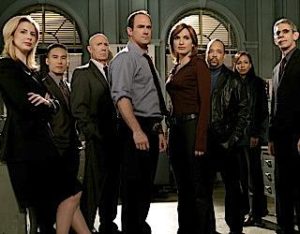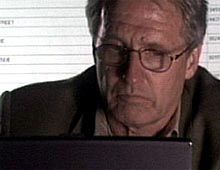Five Ways To Survive A Media Interrogation
A reporter’s job is not dissimilar from that of a character in a primetime drama.
Just look at some of today’s top TV dramas, say CSI or Law and Order or NCIS. The befuddled medical examiners, attorneys, or detectives struggle to piece together the clues they stumble across for the first 50 minutes or so of the program. They can’t quite figure it all out, and try desperately to make sense of the senseless.
But then they have that climactic moment where it all comes together for them – usually in an autopsy suite, a courtroom, or a psychiatrist’s office – during which we get to see, once again, just how finely honed their skills as interrogators are.
Reporters, particularly investigative journalists, are no different. They care about getting to that moment where it all comes together and makes sense. Whether journalists make you look good or bad in the process is inconsequential to them. Their job is to get the story, and they want you to help them get it.
Eric Nalder of Hearst Newspapers is particularly good at media interrogation. In his article, “Loosening Lips: The Art of the Interview,” he helps his media brethren learn how to ask tougher questions.
Below are five of his tips intended to help his fellow investigative journalists trip you up – and five ways you can avoid being trapped by them.
Tip #1: “Research the person and the topic. Run the name on the Internet or check the clips…read court records.”
Your Survival Strategy: Conduct the same research on yourself that the reporter will. Know the public (and private) criticisms of yourself, your company, and your industry. By the time the reporter asks you what could have been a damaging question, you’ll know it’s coming – and you should be able to dispense with it with relative ease.
Tip #2: “When the door is closing on your face, find common ground. ‘By the way, I notice you’ve got a poodle. I’ve got a poodle. Weird dogs. Just the other day….’ The process is to get a person talking about anything and eventually they’ll talk about what you came for.”
Your Survival Strategy: Most reporters are genuinely nice people. But if you find yourself liking the journalist and beginning to say too much, just recite this mantra: “The reporter is not my friend. The reporter is not my friend.” Don’t slam the door in the reporter’s face, but if you’ve said everything you’re going to say, politely say so and extricate yourself.
Tip #3: “Gently, without being insulting, respond to a ‘no comment’ from an ‘important’ person or bureaucrat by explaining how bad that sort of thing looks in print.”
Your Survival Strategy: He’s right. “No comment” is the same as saying “I’m guilty.” If you can’t talk about a specific issue, you’d better tell him why. This technique of commenting without commenting will help.
Tip #4: “Inventory the room thoroughly and in an organized fashion. Look at the walls, read the top of the desk and study the lapel pin. You’ll get clues and details for your story. Make notes on what you see. Make use of what you see in the interview.”
Your Survival Strategy: Control the environment. If you invite a reporter to your home, expect the fact that you have a messy kitchen, a noisy child, or a broken computer in your office to make it into the story. It’s often okay to meet on your turf, but try to view it as an outsider might and manage that impression carefully.
Tip #5: “A great interview feels like a conversation but moves relentlessly toward the information you need. Keep control, but do so gently.”
Your Survival Strategy: Remember that if you’re not careful, you’re going to become that person who was accused of a crime on Law and Order who eventually breaks down because she realizes the interrogator actually had control the entire time. You drafted your messages for a reason. Stay close to them – and whatever you do, avoid the dreaded seven-second stray.
Is your executive team long overdue for a media training session? Please contact us to learn more about our customized media training workshops.





Thanks Brad. This was helpful. When I read the strategy for Tip #1, thought you hit the nail on the head. As much as it pains me to admit, I wouldn’t have thought to do that…but I will now!
Looking at an interview from the other side is always helpful. Thank you for the great content! :o)
Emily